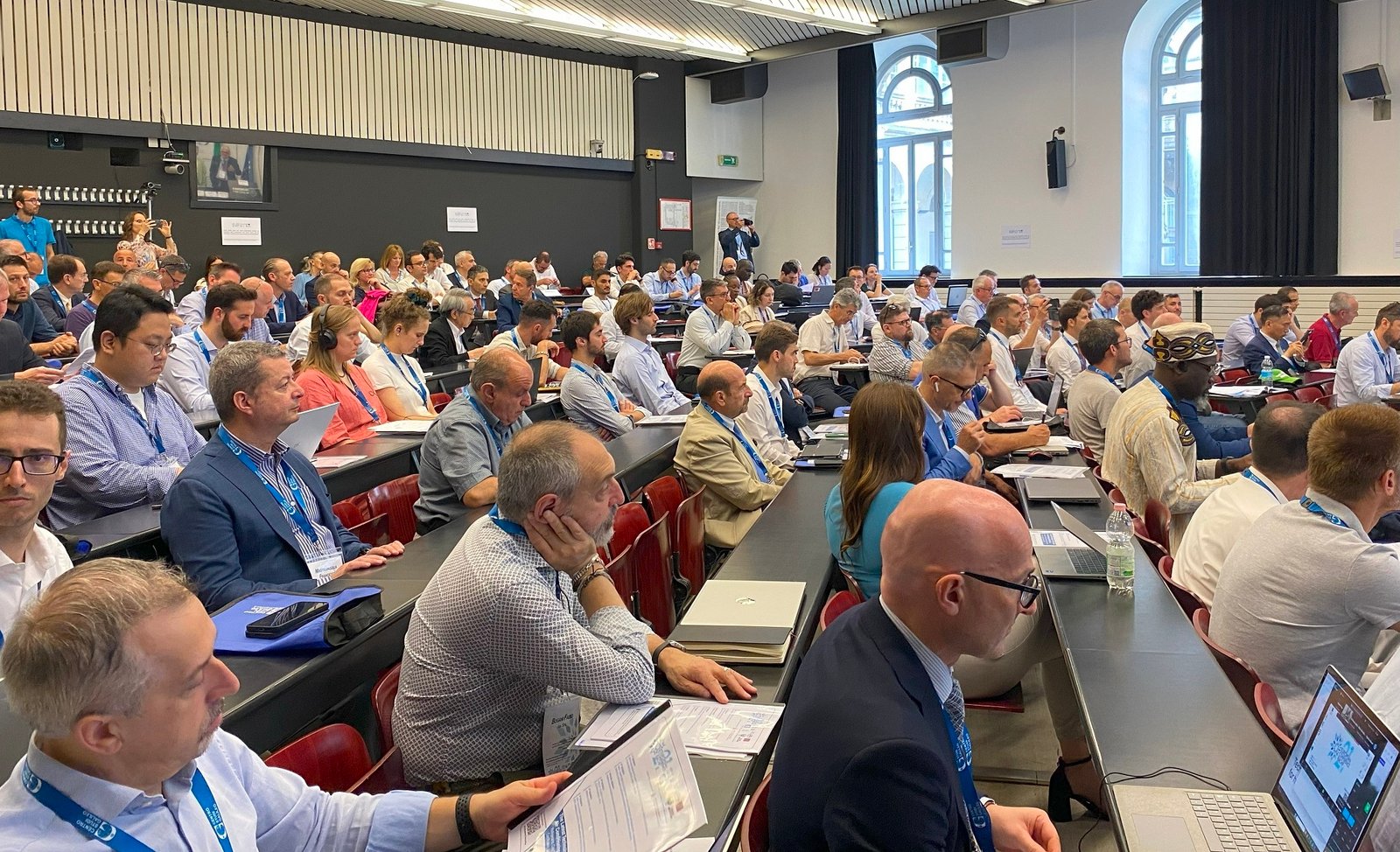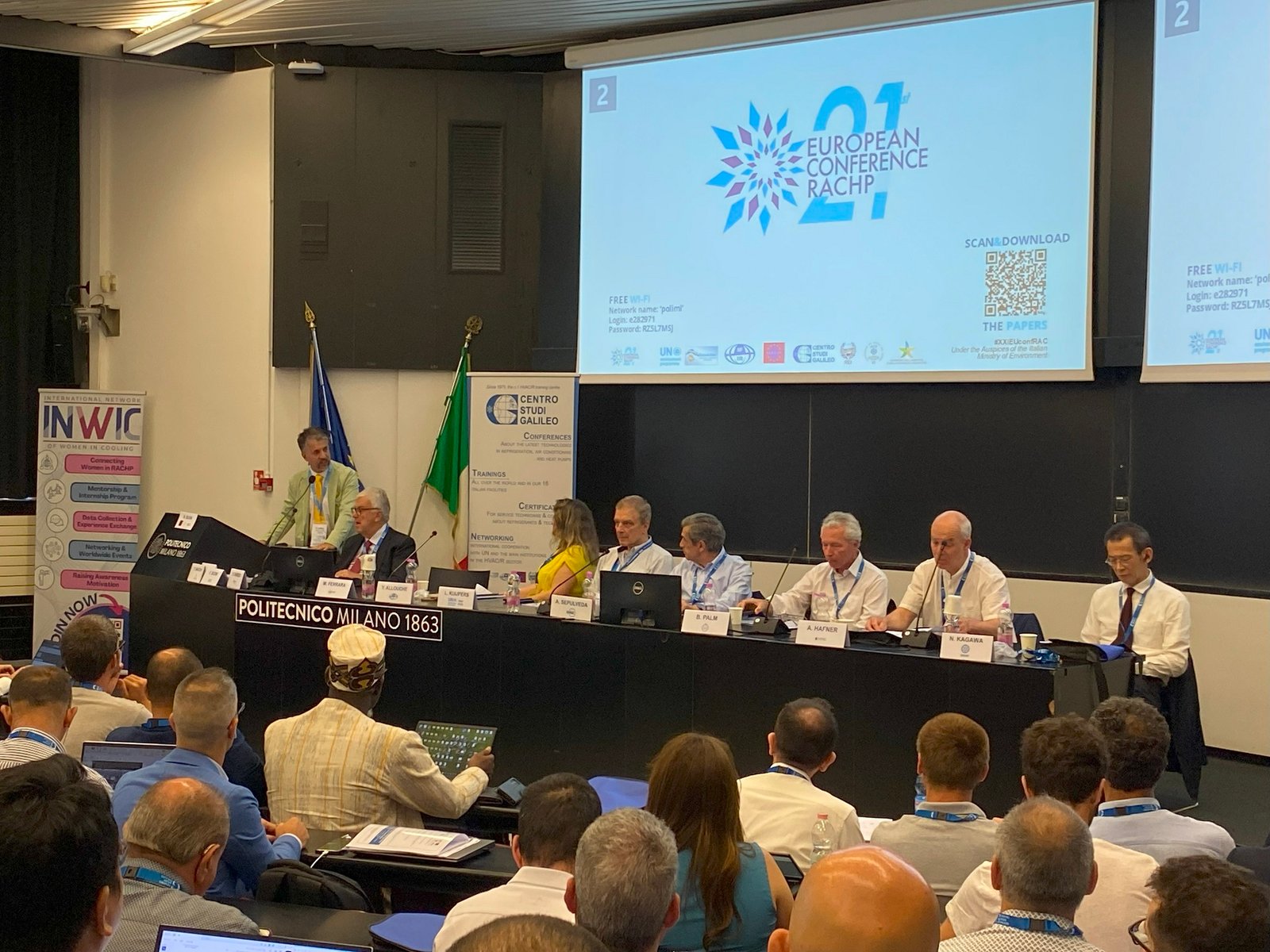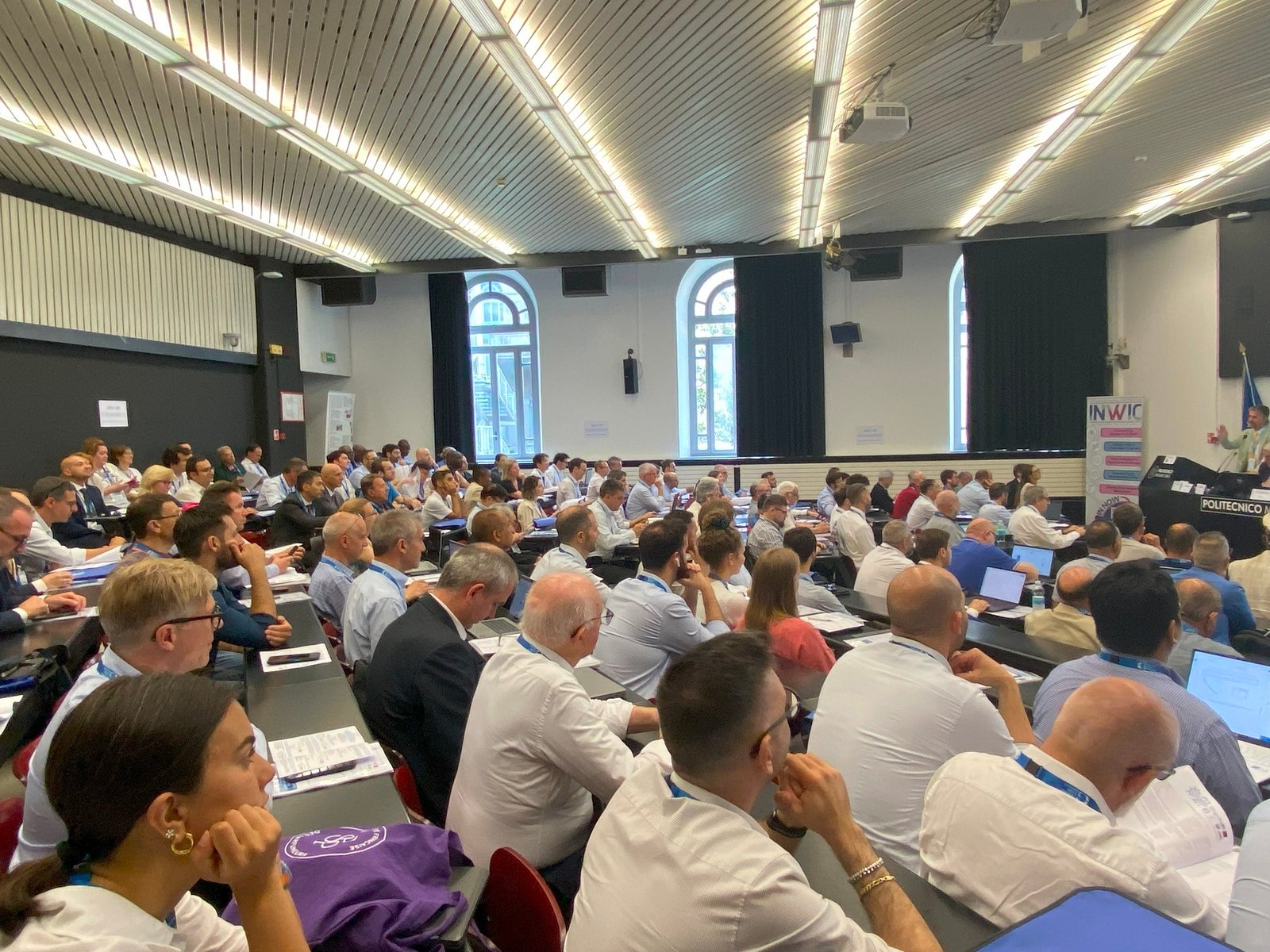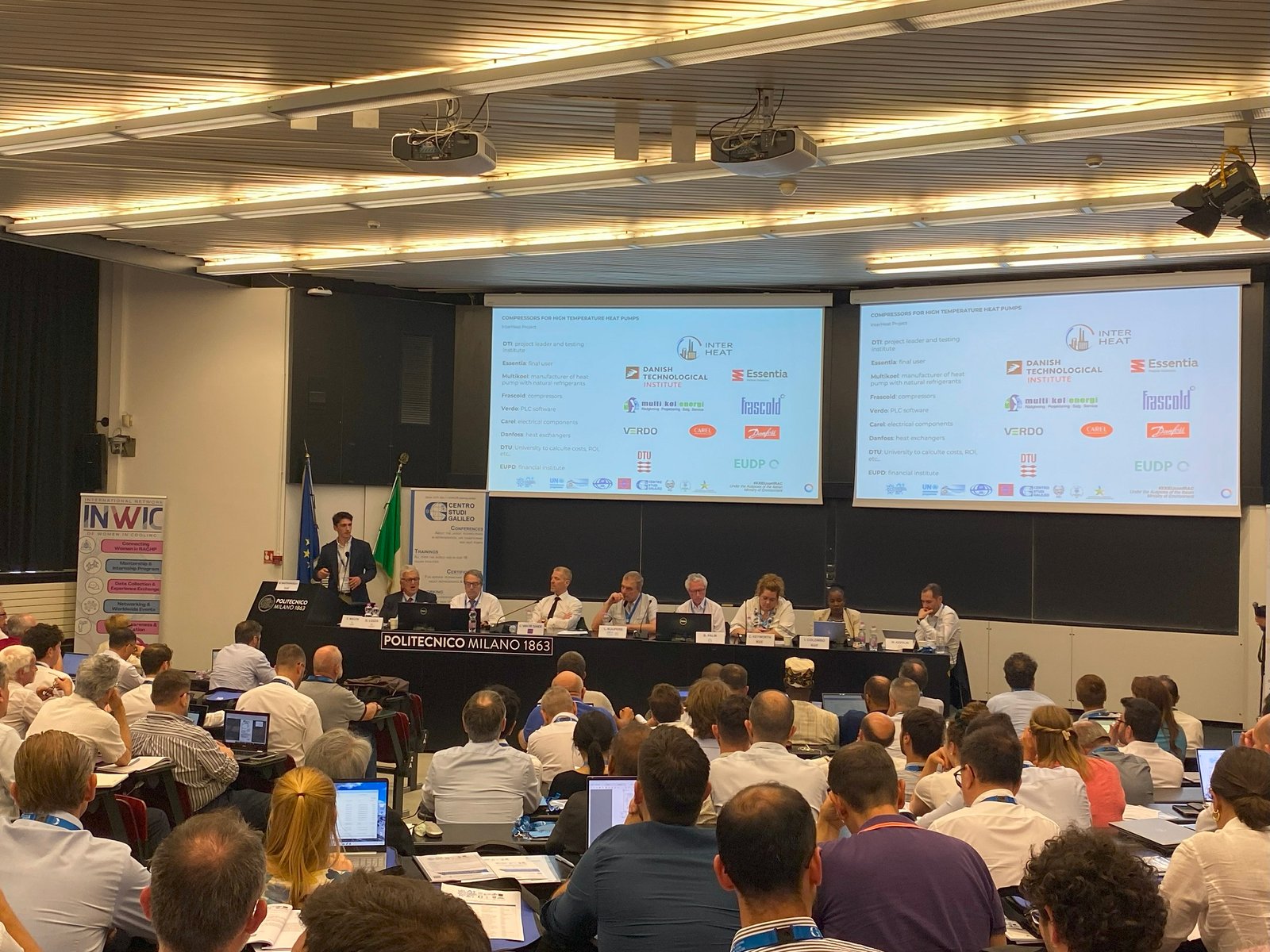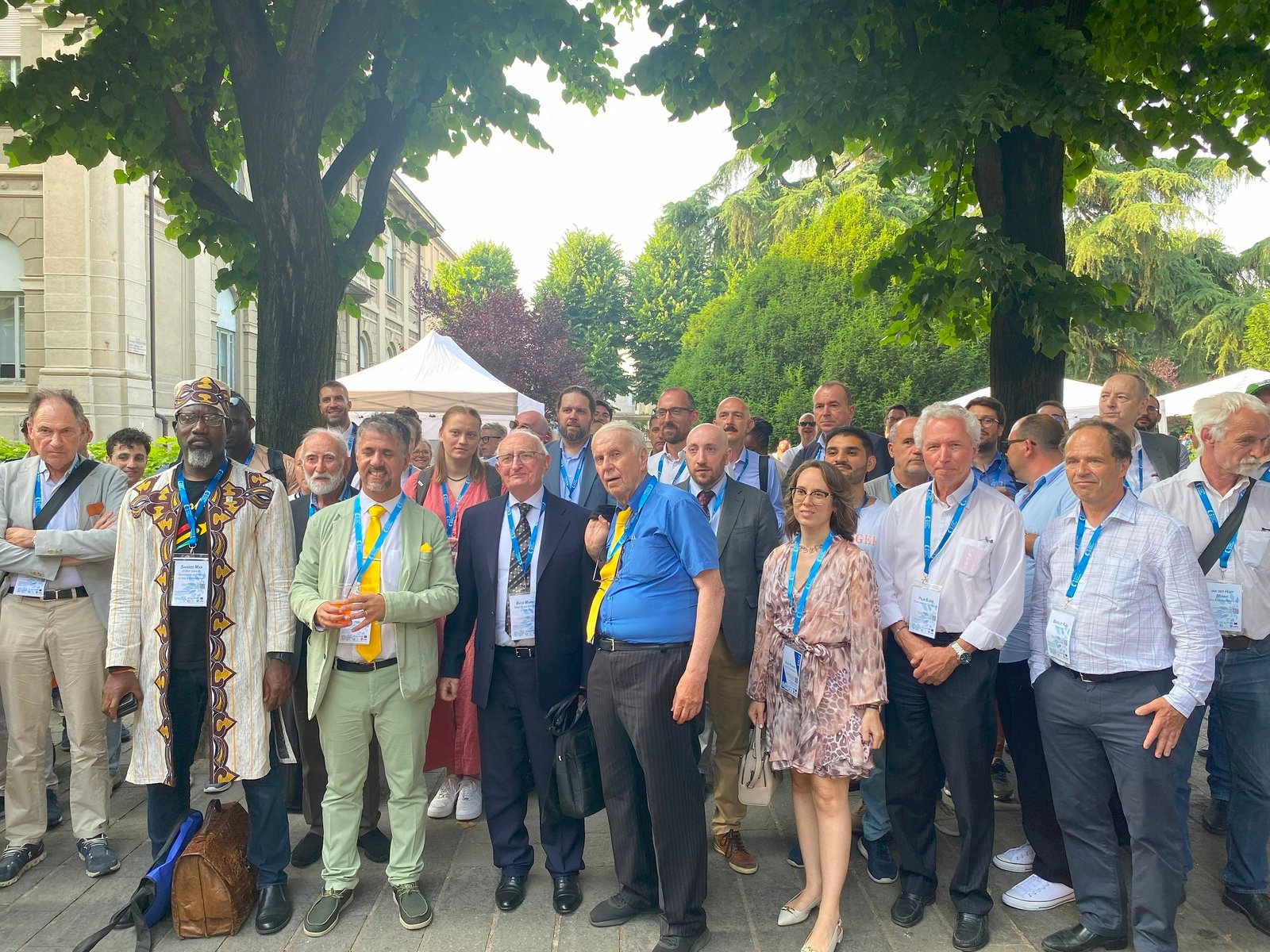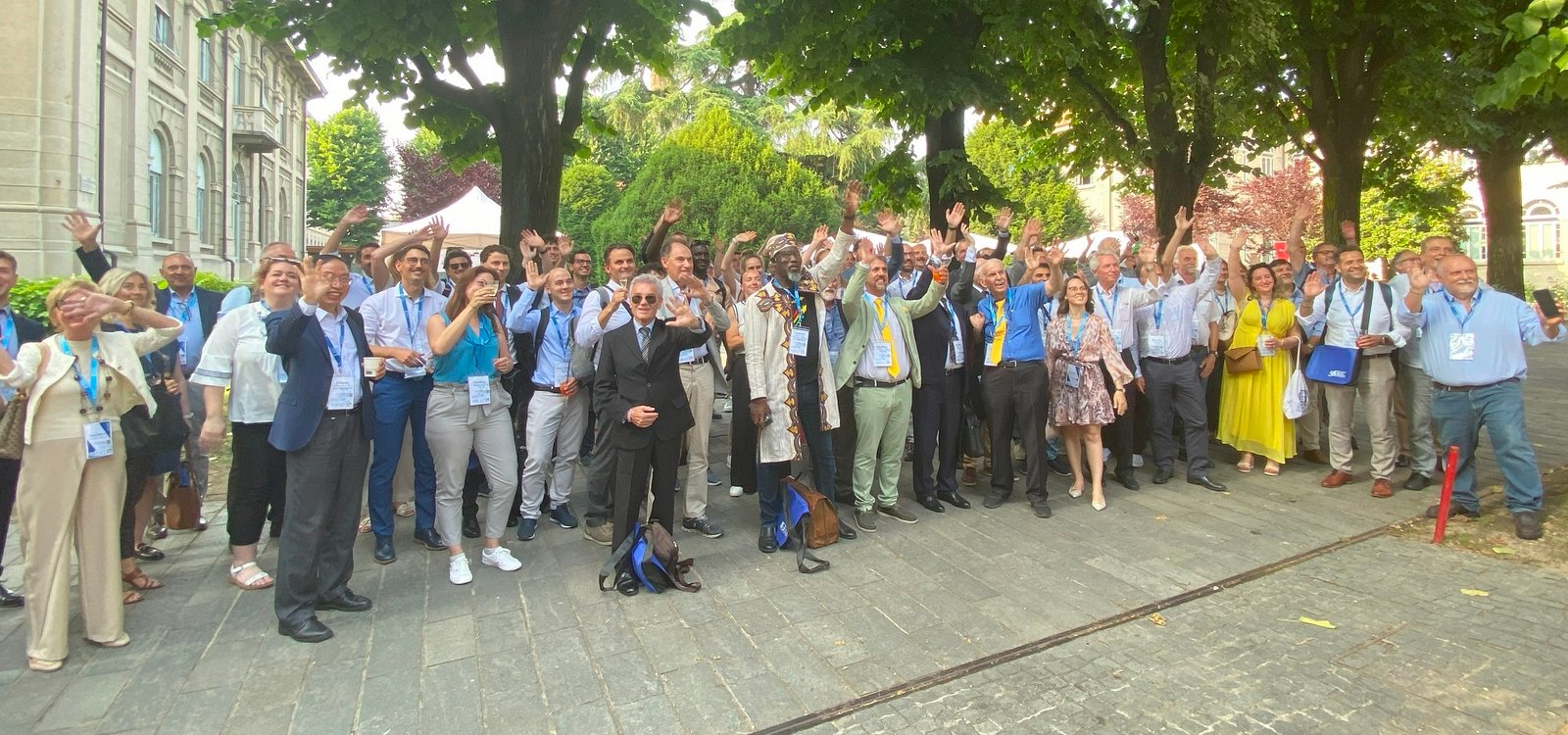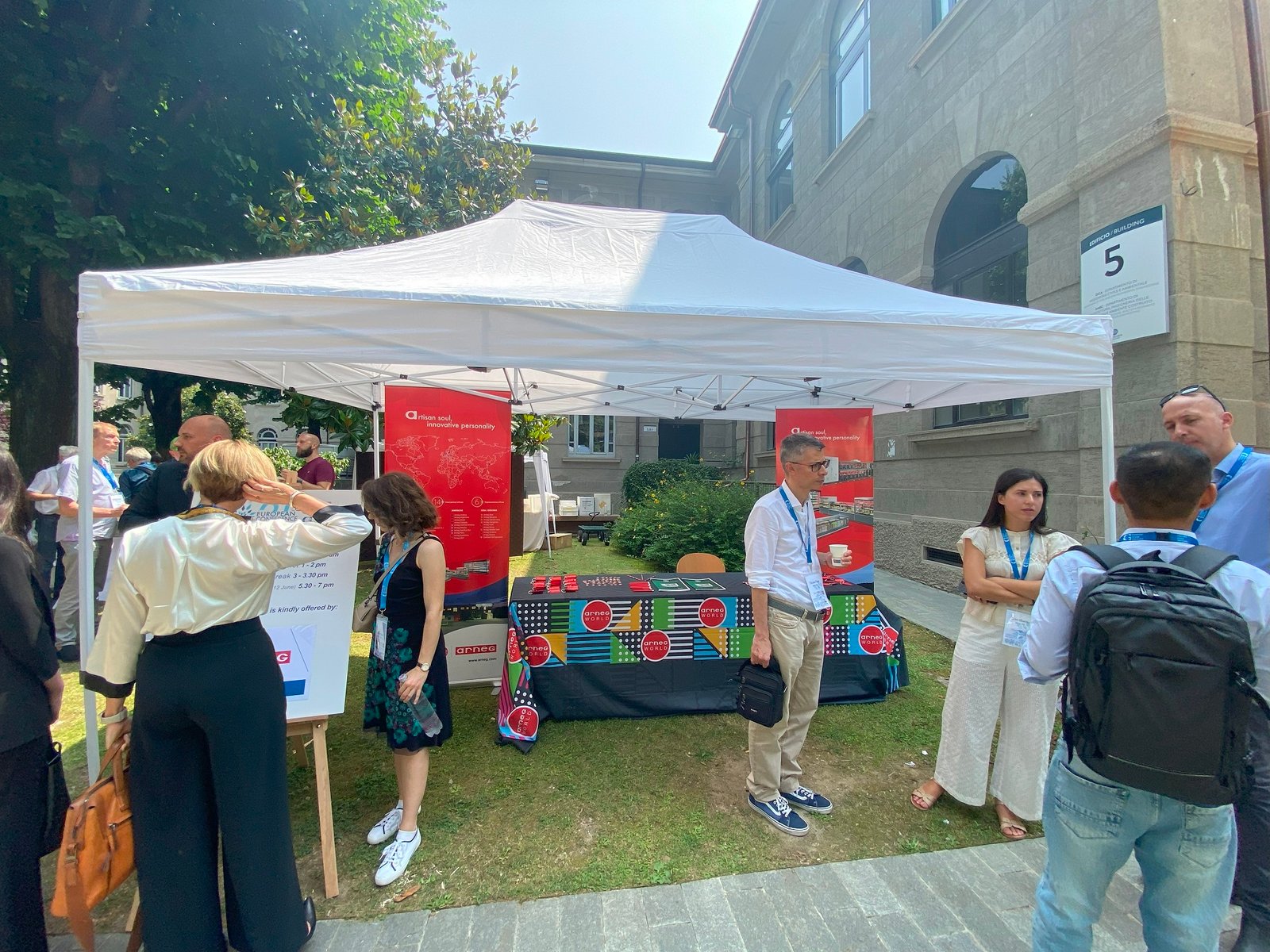The XXI European Conference organized by Centro Studi Galileo took place on June 12-13, 2025, at Politecnico di Milano, bringing together industry experts, policymakers, and researchers to discuss advancements, regulatory changes, and technological innovations in refrigeration and air conditioning systems. The conference was held under the auspices of UNEP, IIR, AREA, REI, and ATF.
Introduction to the Topics
Key topics covered were refrigerants, global and European RAC situations, the cold chain, innovative technologies, equipment and components, F-Gas regulation, energy efficiency, renewable energy integration, and policy regulations.
Session Summaries
1st Session: New Refrigerants and Energy Efficiency
Moderators: E. Fabrizio, M. Ferrara (Politecnico di Torino)
Chairpersons: Y. Allouche (IIR), N. Kagawa (JSRAE), L. Kuijpers (TEAP–RTOC), A. Sepulveda (ASHRAE), A. Hafner (NTNU), B. Palm (KTH)
Topics discussed:
- Development of low-GWP refrigerants.
- Innovations in natural refrigerants (CO2, ammonia, hydrocarbons) and synthetic refrigerants (HFOs, blends).
- Environmental impact and energy efficiency.
Speakers: L. Kuijpers (TEAP–RTOC), A. Hafner (NTNU), B. Palm (KTH), N. Kagawa (JSRAE), A. Sepulveda (ASHRAE), E. D’Alessio (A-Gas), C. Macrì (Daikin Chemical Europe), F. Codella (Chemours), C. Di Pasquale (Nippon Gases Industrial), M. Alonso (Shrieve), P. Mattavelli (General Gas).
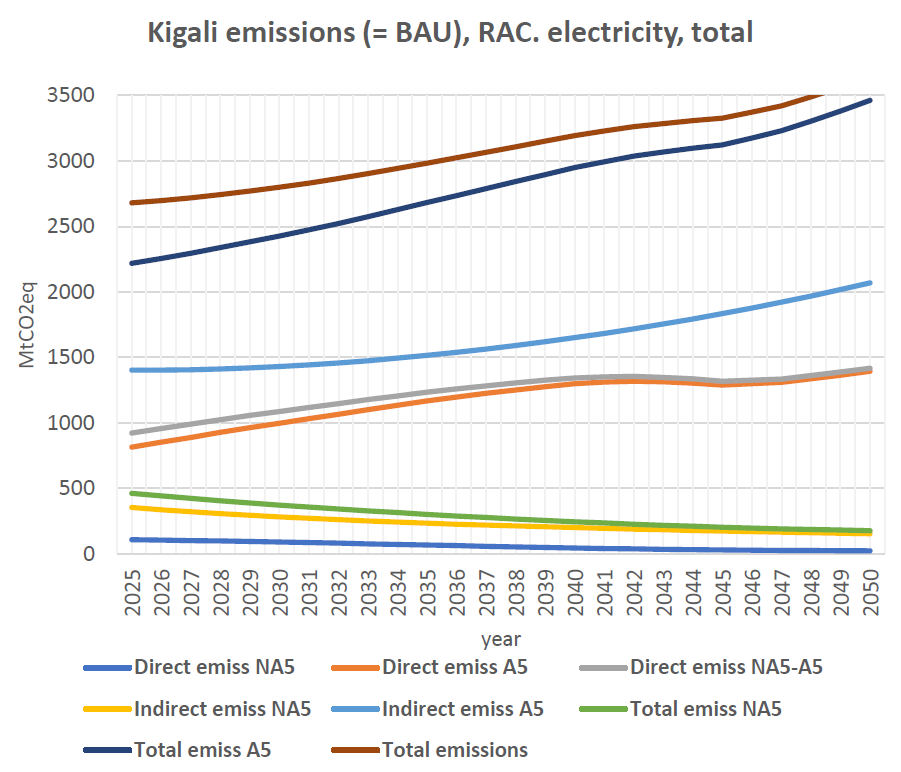
“How Natural Refrigerants May Contribute to Emissions Decreases from R/AC Equipment Operation”
Speaker: Lambert Kuijpers (TEAP–RTOC)
This presentation analyzes the role of natural refrigerants (ammonia, propane, CO₂) in reducing emissions from refrigeration and air conditioning (R/AC) equipment. The author presents modeling scenarios showing that a global shift to low- or near-zero-GWP refrigerants could result in significant emission reductions by 2050. The presentation also highlights that leakage control and accelerated adoption of natural refrigerants are essential for achieving deep decarbonization in the sector.
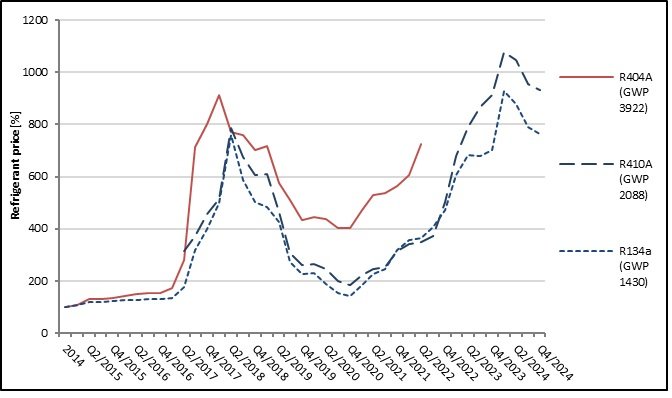
“Does the Market Need Fluorinated Refrigerants?”
Speaker: Armin Hafner (NTNU)
The presentation argues that the sector can already move away from fluorinated refrigerants (F-gases and HFOs) thanks to the availability and proven performance of non-fluorinated alternatives such as propane (R290), ammonia, and CO₂. The speaker presents examples from the European market, where many OEMs are now launching equipment with natural refrigerants, especially following the new EU F-Gas Regulation. Innovations such as oil-free propane compressors are discussed, illustrating that PFAS-free solutions are feasible and scalable.
“IEA HPT Annex 64: Safety Measures for Flammable Refrigerants”
Speaker: Björn Palm (KTH Royal Institute of Technology)
This presentation updates on international research into safe use of flammable refrigerants, mainly hydrocarbons and HFOs. Ongoing projects focus on technical solutions for minimizing risks (such as charge reduction, leak detection, and improved system design), as well as new regulatory recommendations. The findings support expanding the use of flammable refrigerants safely in larger systems, thus helping the industry’s transition away from high-GWP synthetics.
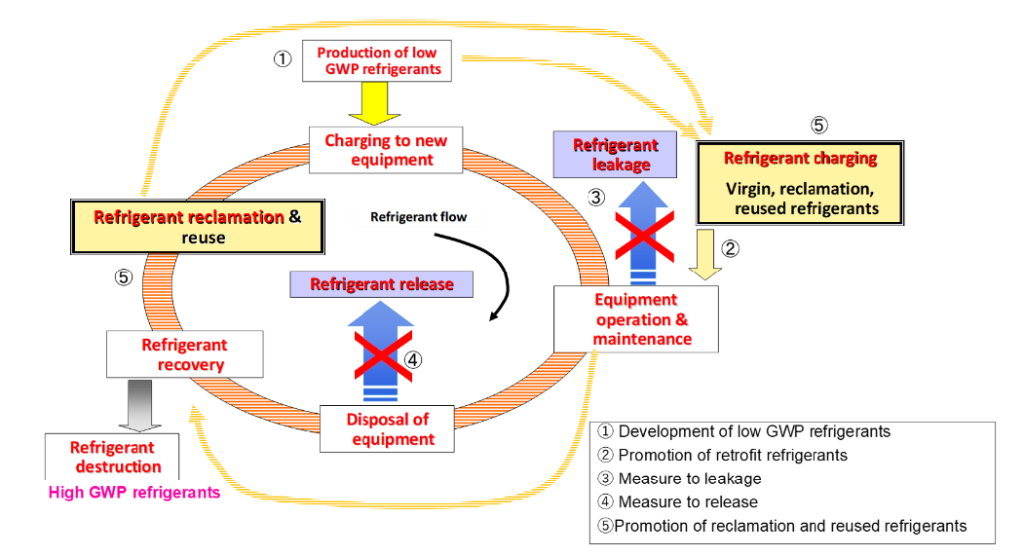
“Advancing Refrigerant and Cylinder Management Systems Toward F-Gas Emission Reduction”
Speaker: Noboru Kagawa (JSRAE)
Professor Kagawa discusses Japan’s pioneering efforts to strengthen refrigerant recovery and reduce F-gas emissions. The talk describes the RefCyl prototype—a digital refrigerant cylinder management system that tracks containers, reduces leakage, and improves lifecycle transparency. Initial results show improved recovery rates and sustainable management, supporting broader GHG reduction goals.
“Empowering Our Workforce: Building a Sustainable Future”
Speaker: Andrés Sepúlveda (ASHRAE)
Sepúlveda’s presentation highlights the critical need for an expanded, diverse, and highly skilled workforce in HVAC&R to meet climate targets and implement the transition to low-GWP refrigerants. He emphasizes the importance of workforce development, inclusive hiring, ongoing education, and rebranding the industry as essential for climate action. The presentation also outlines ASHRAE’s efforts in workforce empowerment and diversity as a foundation for sustainable transformation.
2nd Session: New Components & Equipment
Moderators: E. Macchi, G. Lozza (Politecnico di Milano)
Chairpersons: C. van de Sande (AREA), C. Keyworth (INWIC), I. Colombo (IIR), L. Kuijpers (TEAP–RTOC), B. Palm (KTH), M. Azzolin (Università di Padova)
Topics discussed:
- Energy optimization in components and systems.
- Innovations in compressors, refrigeration plants, lubricants, and mobile air conditioning.
- Efficiency and environmental benefits of alternative refrigerant applications.
Speakers: M. Azzolin (Università di Padova), A. Milic (Teon), S. Filippini (LU-VE Group), A. Muresan (Officine Mario Dorin), M. Mastrapasqua (Frascold), G. Gottardo (BITZER Italia), L. Milani (Carel Industries), M. Bassi (Embraco Nidec), C. Malvicino (Stellantis), M. Vanderhenst (Nissens).
Special Session: Women in Refrigeration
Moderator: C. Keyworth (INWIC)
Chairpersons: I. Colombo (INWIC), Y. Allouche (IIR)
Speakers: I. Colombo (INWIC), B. Schreck (HEAT)
- The session emphasized gender diversity in the RAC sector, highlighting strategies for career development and inclusivity.
Award: EU Women in Cooling Video Competition.
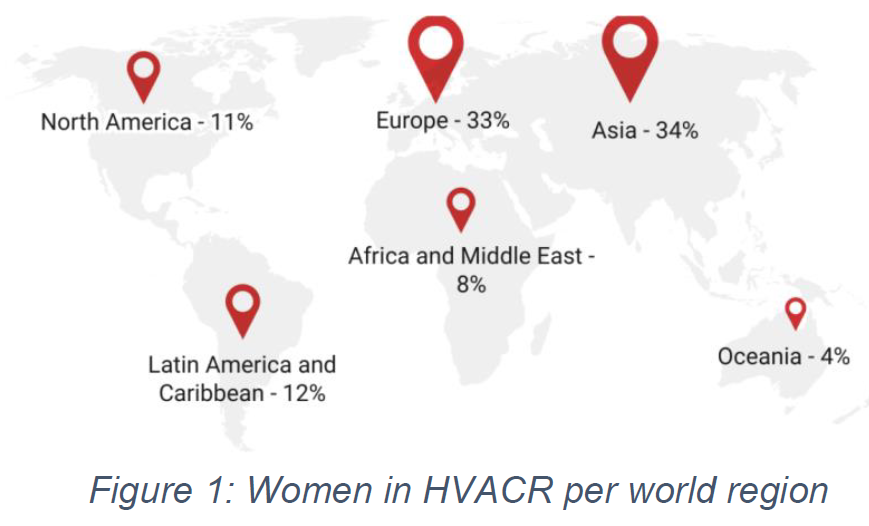
“Women in the Refrigeration, Air Conditioning, and Heat Pump Industry in the European Region”
Speaker: Ina Colombo (International Network of Women in Cooling – INWIC; International Institute of Refrigeration – IIR)
This report presents findings from the IIR and UNEP global and European surveys on women in the RACHP sector. Despite representing a highly educated workforce, women remain significantly underrepresented (about 6% of association members in Europe). Key challenges identified include limited career advancement, work-life balance, and a lack of role models, although retention is strong for women who enter the sector. The creation of international networks like INWIC aims to promote career development, support best practices, and inspire future generations of women to join the industry.
“Experience on Gender Analysis, Design and Mainstreaming in the RACHP Sector”
Speaker: Bettina Schreck (International Expert, HEAT GmbH)
This presentation highlights the importance of gender mainstreaming in the refrigeration, air conditioning, and heat pump sector for both sustainability and economic empowerment. It analyzes structural barriers faced by women (such as limited access to technical training, workplace segregation, and unconscious bias) and reviews case studies from Botswana, Chile, Mexico, and the Climate and Ozone Protection Alliance (COPA). Success factors include gender-sensitive policies, dedicated funding, mentorship, and integrating gender into project governance. The study shows that mainstreaming gender is possible and essential for inclusive and effective climate action in the sector.
3rd Session: Policy and Regulations
Moderator: M. Buoni (AREA)
Chairpersons: B. Tranholm-Schwarz (DG Clima), R. Patten (EPEE), T. Nickson (EIA), M. Masini (ASERCOM), F. Mastrapasqua (Assocold), C. Van De Sande (AREA)
Topics discussed:
- Kigali Amendment and EU F-Gas Regulation 573/2024.
- HFC phase-down, flammable refrigerant standards, and PFAS regulation.
- Training, certification, and safety requirements.
Speakers: B. Tranholm Schwarz (EU DG CLIMA), C. van de Sande (AREA), R. Patten (EPEE), M. Masini (ASERCOM), F. Mastrapasqua (Assocold), T. Nickson (EIA).
“EU F-Gas Regulation 3.0 – Because We Can”
Speaker: Bente Tranholm Schwarz (European Commission DG CLIMA)
This presentation details the ambition and scope of the newly revised EU F-Gas Regulation (2024/573). It highlights the stricter HFC phase-down, new prohibitions on high-GWP F-gases, expanded certification for technicians, and tougher enforcement against illegal activities. The speaker emphasizes that a rapid and comprehensive transition to climate-friendly alternatives is necessary and achievable for the EU’s climate targets.
“The New F-Gas Regulation 3.0: A Key Leap Forward in the Certification of European RACHP Contractors”
Speaker: Coen van de Sande (President, AREA)
This talk focuses on the vital role of training and certification in enabling the sector’s transition from F-gases to low-GWP refrigerants. It explains the new multi-category certification structure for contractors, which now includes requirements for working safely with natural and alternative refrigerants. The presentation also addresses the scale of workforce development needed to support Europe’s ambitious heat pump rollout.
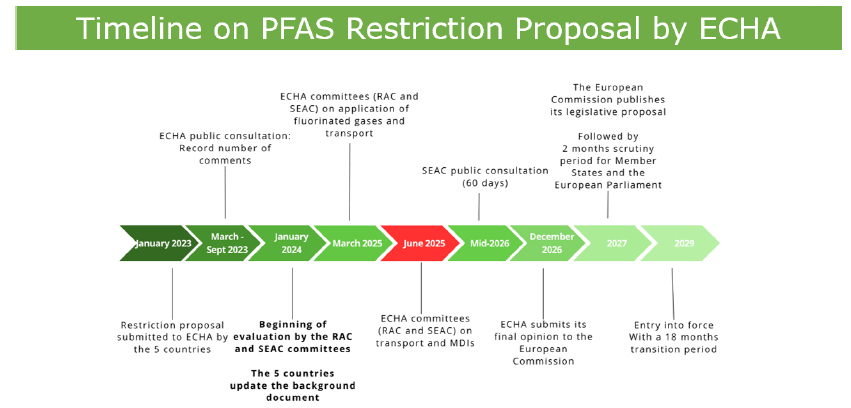
“The EU F-Gas Regulation: Where Are We Today and Where Will We Be in the Years to Come?”
Speaker: Russell Patten (Director General, EPEE)
This report reviews the major provisions and implementation steps of the new EU F-Gas Regulation, including quota reductions, product bans, expanded containment measures, and the inclusion of PFAS restrictions. The presentation examines the challenges and market impacts of the phase-down, the push for circularity through recovery/reuse, and the importance of innovation and flexibility in the refrigerant transition.
“Safety Exemption in the FGAS Regulation 2024/573: Regulatory Analysis, Technical Applications and Risk Analysis Methods”
Speaker: Marco Masini (President, ASERCOM)
Masini provides an in-depth legal and technical analysis of the new “safety exemption” in the F-Gas Regulation. The presentation explains when and how the exemption can be applied, relevant risk assessment tools, and the implications for manufacturers, installers, and operators—especially in critical environments where the use of flammable alternatives is not feasible.
“Navigating the Sustainability Landscape: The Latest Policies and Market Trends in Refrigeration”
Speaker: Francesco Mastrapasqua (President, ASSOCOLD)
This presentation reviews how tightening policies and market dynamics are pushing the refrigeration industry toward sustainability. Key topics include the shift from HFCs to natural refrigerants and low-GWP solutions, the role of new technologies (heat recovery, waterloop systems), the impact of PFAS regulation, and strategies for retailers to achieve both environmental compliance and operational efficiency.
“Beyond Success: Evolving the Montreal Protocol for a Cool Future”
Speaker: Clare Perry, Tom Nickson (Environmental Investigation Agency – EIA UK)
This talk discusses the ongoing challenges and evolving priorities for the Montreal Protocol, including the need to close implementation gaps, strengthen controls on HFC-23 and feedstock emissions, and embrace lifecycle refrigerant management. The speakers call for increased transparency, stronger compliance, and a more strategic global approach to sustainable cooling and the HFC phase-down.
4th Session: Green Cooling, Heat Pumps and Energy Efficiency
Moderator: A. Voigt (Cool Coalition)
Chairpersons: M. Ferrario (Eurovent), X. Li (CAR), G. Righetti (Università di Padova), J. Lanier (AHRI), M. Marchesini (Assoclima)
Topics discussed:
- European Green Deal and ecodesign regulations.
- Innovations in heat pumps and cooling technologies (absorption, adsorption, evaporative, district cooling).
- Integration of renewable energy sources.
Speakers: M. Ferrario (Eurovent), J. Lanier (AHRI), X. Li (CAR), A. Voigt (Cool Coalition), M. Marchesini (Assoclima), G. Righetti (Università di Padova), V. Gentile (Politecnico di Torino), T. Funder-Kristensen (Danfoss), N. Ronga (Errecom), A. Bocanegra (Università di Genova), R. Nidasio (CTI).
“Assessment of Future Ecodesign Requirements for Air Heating and Cooling Products”
Speaker: Massimiliano Ferrario (Technical and Regulatory Affairs Officer, Eurovent)
This presentation reviews upcoming changes in EU Ecodesign regulations for air heating and cooling products. It outlines new product scope, efficiency targets, and the challenges manufacturers face due to shifting refrigerant policies and pending PFAS restrictions. The talk highlights industry concerns about the definition and performance of “natural” refrigerants and the need for robust methodologies before new requirements take effect.
“The Path to Sustainability in Uncertain Times”
Speaker: John Lanier (Chief Operating Officer, AHRI)
Lanier’s report discusses the balance needed between ambitious environmental goals and economic realities. Using examples from the US and Europe, he argues that energy and climate policies must be inclusive, realistic, and incremental to succeed. He emphasizes that consumer acceptance and affordability are vital for the large-scale adoption of sustainable HVAC solutions.
“Performance of Double-Layer Pipe-Embedded Wall Combined with Shallow Geothermal Energy in Cold Climate Zone”
Speaker: Xianting Li (Tsinghua University)
This technical study presents a case in Beijing demonstrating that double-layer pipe-embedded walls integrated with ground heat exchangers and heat pumps can achieve a 28% annual energy savings over conventional systems. The solution shows a dynamic payback period of just 3.6 years, supporting the viability of advanced envelope-integrated HVAC for low-carbon buildings.
Read full presentation
“District Cooling: The Sustainable Solution for Cooling Cities”
Speaker: Andrea Voigt (Executive Board Member, The Cool Coalition)
Voigt details how district cooling can deliver sustainable, scalable urban cooling using centralized infrastructure. The report presents successful examples from Stockholm, Paris, Barcelona, and Dubai, and argues that integrating district cooling with renewables, energy storage, and long-term planning is essential for near-zero emission urban cooling by 2050.
Read full presentation
“The Impact of Ecodesign Legislation and Other Initiatives on Heat Pumps Manufacturers”
Speaker: Maurizio Marchesini (President, Assoclima)
Marchesini discusses how past and upcoming EU Ecodesign and energy labelling legislation have driven innovation in heat pump manufacturing, pushing the industry toward higher efficiency, circularity, and use of low-GWP refrigerants. The talk notes that new regulatory burdens—especially product-specific environmental declarations—may slow innovation if not carefully implemented.
“Integration of Latent Thermal Storage with Heat Pumps: Challenges and Future Developments”
Speaker: Giulia Righetti (University of Padova)
Righetti’s report analyzes the technical and operational hurdles in combining latent thermal energy storage (LTES) with heat pumps. The findings show that system-level co-design is crucial for optimal performance and reliability, and point to future opportunities for integrated solutions tailored to residential climate control.
“Standalone Propane Micro Heat Pump for Personalized Thermal Comfort”
Speaker: Vincenzo Maria Gentile (Politecnico di Torino)
Gentile presents a prototype of a personalized, desktop propane micro heat pump system for office environments. This technology enables significant energy savings and user comfort by focusing heating and cooling on individuals, rather than entire spaces, aligning with F-Gas phase-out and sustainability trends.
5th Session: Cold Chain, AI, and Predictive Maintenance
Moderator: Y. Allouche (IIR)
Chairpersons: M. Sakandé (U-3ARC), M. Buoni (CSG–ATF–AREA), S. El Harch (U-3ARC), W. Shah (CNR Padova)
Topics discussed:
- Cold chain technologies for food preservation and transportation.
- Applications of AI and digital twins in predictive maintenance.
- Energy optimization and sustainability in refrigeration.
Speakers: Y. Allouche (IIR), S. El Harch (U-3ARC), W. Shah (CNR Padova), K. Berglöf (ClimaCheck).
Key Conclusions and Recommendations
- Adoption of low-GWP refrigerants.
- Energy-efficient and environmentally friendly component integration.
- Digital predictive maintenance technologies.
- Enhanced workforce training and certification.
- Promotion of gender diversity.
“The Role of Refrigeration in the Global Economy”
Speaker: Dr. Yosr Allouche (International Institute of Refrigeration – IIR)
This report highlights the essential role of refrigeration in modern society, from food security to healthcare and industrial development. The speaker emphasizes that while refrigeration is vital for economic growth, health, and climate adaptation, the sector faces challenges such as a global shortage of skilled workers and the urgent need for sustainable, energy-efficient, and low-GWP solutions. The IIR calls for holistic, science-driven approaches, increased investment in infrastructure and training, and greater support for developing countries to expand access to refrigeration and cold chains.
“The Cold Chain: A Strategic Infrastructure for Sustainable Development in Africa”
Speaker: Said El Harch (Vice-President, U-3ARC)
This presentation explores the crucial role of the cold chain in Africa’s agriculture and fisheries sectors, noting that up to 39% of food is lost at the production stage due to inadequate refrigeration infrastructure. Case studies from across the continent reveal persistent barriers—such as lack of investment, technical training, and reliable electricity—yet also demonstrate successful solutions through solar refrigeration, public-private partnerships, and targeted training. Strengthening the cold chain is presented as a lever for food security, economic growth, and rural transformation in Africa.
“Experimental Investigation of a Carbon Dioxide Refrigeration Unit Designed for Medium Size Refrigerated Trucks”
Speaker: Wasim Shah (University of Padova; with F. Fabris, S. Minetto, A. Rossetti, S. Marinetti, CNR Padova)
This technical report presents an experimental study of a new CO₂-based refrigeration unit developed for medium-sized refrigerated trucks as part of the EU ENOUGH project. The results show significant improvements in energy efficiency and emissions reduction compared to standard HFC-based solutions. The unit performed well across various temperature conditions, demonstrating CO₂’s potential as a sustainable refrigerant for food transport in support of the EU’s carbon neutrality goals.
“Explainable AI (XAI) Drives the Change to Predictive Maintenance (PdM) in Refrigeration, Air-Conditioning and Heat Pumps”
Speaker: Klas Berglöf (Head of R&D and Founder, ClimaCheck Sweden AB)
Berglöf’s presentation focuses on the transformative impact of Explainable AI and digital twins in the HVACR sector. By enabling automated fault detection, predictive maintenance, and continuous performance monitoring, these digital tools offer 20–30% energy savings and reduced maintenance costs for owners. The speaker emphasizes that industry adoption of XAI is a key opportunity to improve reliability and operational efficiency, while shifting away from traditional, reactive maintenance practices.
Practical Implications
The conference provided a clear roadmap for compliance, competitiveness, and sustainability, highlighting regulatory readiness, innovation adoption, workforce development, and digital transformation.
Know more about the conference.
